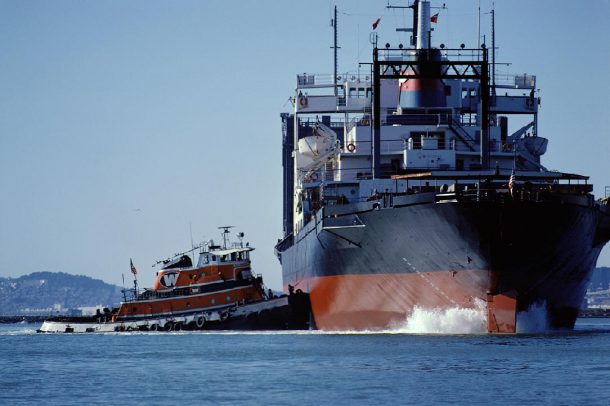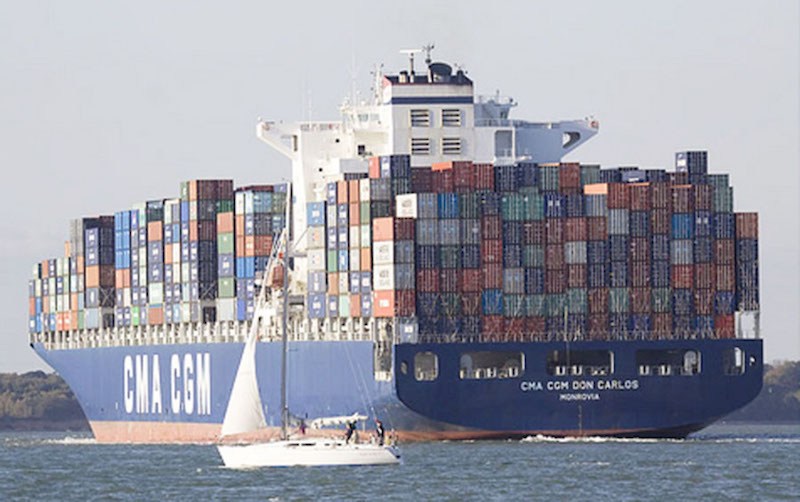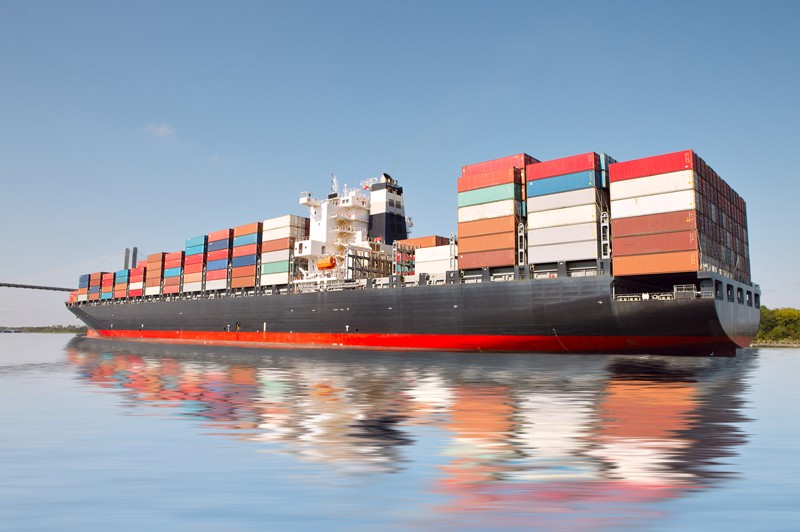MARITIME TRANSPORTATION BUSINESS PLAN IN NIGERIA
 MARITIME TRANSPORTATION BUSINESS PLAN IN NIGERIA
MARITIME TRANSPORTATION BUSINESS PLAN IN NIGERIA
This sample maritime transportation business plan in Nigeria can be used for government and non – government business grant applications, for bank loan applications, for writing business proposals, in writing business concept notes, for business grant competitions, other competitions and so on. The maritime transportation business plan in Nigeria is a very viable business idea , which will require a lot of strategic planning to start. You will also need the guidance and backing of a professional business consultant in Nigeria like Dayo Adetiloye to help you in effectively implementing the business plan
BUSINESS DESCRIPTION OF THE MARITIME TRANSPORTATION BUSINESS PLAN IN NIGERIA
Business: MARITIME TRANSPORTATION
Industry: TRANSPORTATION
A sustainable transportation system allows affordable access to transportation modes, which are consistent with ecosystem health and support low impact economic development.
Short sea shipping is any movement of freight by water that doesn’t cross oceans, on freight ferries, short – haul barges and various other marine vessels. Both public agencies and private companies are investigating the potential economic and environmental benefits of transferring more cargo from road to sea.
Patilad Maritime Trans. will be a short sea shipping business delivering local produce throughout the Lagos/Abeokuta harbour. Patilad will be a “for benefit” company. Patilad will facilitate the delivery of locally grown agricultural products, local seafood, palletized biomass, artisan craft and perhaps containerized urban compost.
Problem Statement:
The current state of transportation systems in many regions, including the Lagos/Abeokuta harbour, faces significant challenges that impact both the economy and the environment. One of the primary issues is the overreliance on road transportation for the movement of goods, leading to congestion, increased carbon emissions, and a strain on the existing infrastructure. This situation not only hampers the efficiency of freight movement but also contributes to environmental degradation, posing a threat to ecosystem health.
In the context of Lagos/Abeokuta, the region’s economic development is hindered by the limitations of the existing transportation modes, particularly the dominance of road transport. The reliance on trucks for the delivery of goods, including locally grown agricultural products, seafood, palletized biomass, artisan craft, and urban compost, results in high operational costs, traffic congestion, and pollution. Additionally, the road infrastructure may not be equipped to handle the increasing demands of a growing economy, leading to delays and inefficiencies in supply chains.
Furthermore, the environmental impact of extensive road transportation cannot be overlooked. The emissions from vehicles contribute to air pollution, and the wear and tear on roadways add to the overall ecological footprint. As sustainability becomes a key focus globally, there is a pressing need for alternative transportation solutions that not only address economic concerns but also align with environmental stewardship principles.
Solution Statement:
Patilad Maritime Trans. aims to revolutionize the transportation landscape in the Lagos/Abeokuta harbour by introducing a sustainable short sea shipping business. This “for benefit” company is dedicated to providing affordable access to transportation modes that not only support economic development but also prioritize ecosystem health and environmental sustainability.
Introduction of Short Sea Shipping:
Short sea shipping is identified as a promising solution to the challenges posed by road transportation. By utilizing freight ferries, short-haul barges, and various marine vessels, Patilad Maritime Trans. plans to shift a significant portion of cargo movement from roads to the sea. This not only reduces traffic congestion on highways but also minimizes the carbon footprint associated with traditional road transport.
Local Produce Delivery:
Patilad Maritime Trans. focuses on facilitating the delivery of locally grown agricultural products, seafood, palletized biomass, artisan craft, and containerized urban compost. By doing so, the company supports local businesses and farmers, contributing to the growth of the regional economy.
Economic Benefits:
The introduction of short sea shipping offers economic benefits on multiple fronts. Firstly, it provides a more cost-effective and efficient mode of transportation for goods. The use of water routes can be more economical than traditional road transport, especially for bulk and heavy cargo.
Environmental Benefits:
Short sea shipping is inherently more environmentally friendly than road transportation. Vessels used in this mode typically have lower carbon emissions per ton-mile, contributing to a reduction in overall greenhouse gas emissions. This transition aligns with global efforts to combat climate change and promotes sustainable practices in the transportation sector.
Infrastructure Relief:
By diversifying the transportation options, Patilad Maritime Trans. contributes to the reduction of stress on road infrastructure. This can lead to extended lifespans of roads, reduced maintenance costs, and an overall improvement in the quality of transportation infrastructure in the region.
Community Engagement:
Patilad Maritime Trans. recognizes the importance of community engagement. The company aims to involve local communities in its operations, creating employment opportunities and fostering a sense of ownership and pride. Local stakeholders, including farmers and producers, will benefit from the efficient and sustainable transportation of their goods.
Technological Integration:
Leveraging modern technology, Patilad Maritime Trans. plans to optimize its operations. This includes the use of tracking systems for cargo, predictive maintenance for vessels, and efficient route planning to ensure timely and secure deliveries. Technological advancements contribute to operational efficiency and overall sustainability.
Regulatory Compliance:
Patilad Maritime Trans. is committed to adhering to all relevant environmental regulations and sustainability standards. This commitment not only ensures compliance with legal requirements but also demonstrates the company’s dedication to responsible business practices.
Continuous Improvement and Innovation:
To stay ahead in the rapidly evolving transportation sector, Patilad Maritime Trans. commits to continuous improvement and innovation. This involves staying abreast of emerging technologies, incorporating feedback from stakeholders, and actively seeking ways to enhance both economic and environmental performance.
The Benefits of our Products and Services are;
– Patilad Maritime Trans. has benefits in several areas; food, health, responsible consumption, community development, citizen participation, sail training, regional planning and job creation.( in farming, logistics, ship building, and maintenance among others).
– The possible gains by incorporating the Patilad transportation model and local food and power include: improving the diet, disease prevention and recycling of organic wastes and reusing inorganic waste, carbon sequestration, reduction in costs associated with transporting food; responsible consumption, increasing self – esteem.
OUR PRODUCTS AND SERVICES
Patilad Maritime Trans. will facilitate the delivery of locally grown agricultural products, local seafood, pelletized biomass,artisan craft and perhaps containerized urban compost
Patilad will purpose built vessels to move goods from Port to port
It will be fashioned to provide an alternative less carbon intensive produce and general cargo service based on a business philosophy that takes into account a triple bottom line — economic, social and environmental benefits
OBJECTIVES OF THE MARITIME BUSINESS PLAN IN NIGERIA
The objectives of the maritime business plan in Nigeria are as follows:
– To develop services whose primary goal is to exceed customers expectations
– To initiate a relationship with dealers and marketers to reach far places in Nigeria
– To establish our brand in the heart of major cities in Nigeria
– To achieve a net profit in year one, increasing in year two, by containing costs and meeting sales targets
– To achieve a net profit of $6,000,000 in our fourth year
 MARITIME TRANSPORTATION BUSINESS PLAN IN NIGERIA
MARITIME TRANSPORTATION BUSINESS PLAN IN NIGERIA
GOALS OF THE MARITIME TRANSPORTATION BUSINESS PLAN IN NIGERIA
The goals of the maritime transportation business plan in Nigeria are;
– To become one of the first five maritime transportation companies in Nigeria.
– To establish our brand in heart of major cities in Nigeria
– To continue to grow and expand into a bigger market
VISION FOR THE MARITIME TRANSPORTATION BUSINESS PLAN IN NIGERIA
The vision for the maritime transportation business plan in Nigeria is; To bring and develop new infrastructure for maritime transportation.
MISSION FOR THE MARITIME TRANSPORTATION BUSINESS PLAN IN NIGERIA
The mission for the maritime transportation business plan in Nigeria is; to offer educational and cultural opportunities, and provide a venue local economic growth and revenue
MANAGEMENT TEAM OF THE MARITIME TRANSPORTATION BUSINESS PLAN IN NIGERIA
The management team of the maritime transportation business plan in Nigeria is made up of the following group of people:
Abayomi Olaitan: He is the owner and founder of the company. An alumnus of the University of Kentucky, Bayo is well skilled and a highly experienced Engineer, who has worked with some leading maritime transportation companies in the continent of Africa.
Dayo Adetiloye: ( B.AGRIC, MBA, and PMP). He has over fifteen years experience in business management, business start – up dynamics, financial management of business and overall business growth and development. He is an alumnus of the enterprise Development Centre(EDC), of the Lagos Business School(LBS), Pan African University(PAU). He is our business development strategist and a strategic partner of the company
We brought to the business;
– Educational skill and practical experience in the maritime transportation sector of industry
– Capacity to consistently deliver outstanding service
– Quality assured standards
– Our staff bring operational, promotional and technical skills to the business
 MARITIME TRANSPORTATION BUSINESS PLAN IN NIGERIA
MARITIME TRANSPORTATION BUSINESS PLAN IN NIGERIA
MANAGEMENT EXPERIENCE GAINED FOR THE MARITIME TRANSPORTATION BUSINESS PLAN IN NIGERIA
With over thirty years experience in the maritime transportation sector of industry, and through numerous exposure to both the scientific and business aspects of services, we have been able to master the technical requirements, financial management, staff recruitment and organizational skills among other factors which are required to give us a good commendation and quality referrals from our clients. Having a strong managerial skill, I have been able to recruit an effective and highly efficient workforce these past years, and also to coordinate the needed teamwork in most aspects of the company.
I am the CEO of the company, and take responsibility for overseeing and monitoring the everyday activities of the company.
MATERIALS AND EQUIPMENTS REQUIRED FOR THE MARITIME TRANSPORTATION BUSINESS PLAN IN NIGERIA
Launching a maritime transportation business in Nigeria requires careful consideration of the materials and equipment essential for the smooth and efficient operation of the venture. The success of Patilad Maritime Trans. hinges on a well-equipped and reliable infrastructure. Below is a detailed list of materials and equipment necessary for the maritime transportation business plan in Nigeria:
- Vessels:
– Cargo ships, freight ferries, and short-haul barges are the backbone of the maritime transportation business. These vessels should be suitable for the local waters, comply with safety standards, and have the capacity to transport various types of cargo, including agricultural products, seafood, biomass, artisan craft, and compost.
- Navigation and Communication Equipment:
– GPS systems, radar, sonar, and communication devices are critical for safe navigation and efficient coordination. Ensuring that vessels are equipped with up-to-date technology enhances the safety of maritime operations and facilitates effective communication between the crew and onshore personnel.
- Cargo Handling Equipment:
– Equipment for loading and unloading cargo, such as cranes, forklifts, and conveyor belts, is essential. This equipment should be capable of handling different types of cargo efficiently and safely, reducing turnaround times at ports and ensuring the smooth flow of operations.
- Safety Equipment:
– Safety is paramount in maritime transportation. Essential safety equipment includes life jackets, lifeboats, fire suppression systems, emergency response tools, and first aid kits. Compliance with international maritime safety standards is crucial for the protection of both crew and cargo.
- Maintenance and Repair Facilities:
– Facilities for vessel maintenance and repair, including dry docks and repair yards, are necessary to ensure the continuous operational readiness of the fleet. Regular maintenance and prompt repairs contribute to the longevity of vessels and the overall safety of maritime operations.
- Warehousing and Storage Facilities:
– Adequate warehousing and storage facilities at ports are essential for temporarily housing cargo before distribution. Proper storage conditions must be maintained to preserve the quality of perishable goods, and security measures should be in place to prevent theft or damage.
- Tracking and Monitoring Systems:
– Advanced tracking systems for cargo are crucial for real-time monitoring of shipments. These systems enhance visibility and allow for efficient route planning. Integration of tracking technology also contributes to security measures by deterring theft and facilitating the recovery of lost or stolen cargo.
- Fueling Infrastructure:
– Reliable fueling infrastructure, including storage tanks and refueling stations, is necessary to ensure a continuous and uninterrupted fuel supply for the vessels. Efficient fuel management is essential for cost-effectiveness and sustainability.
- IT Infrastructure:
– Information technology infrastructure, including software for fleet management, logistics, and communication, is crucial for optimizing operations. Integrated IT systems improve efficiency, enable better decision-making, and contribute to the overall effectiveness of the maritime transportation business.
- Regulatory Compliance Documentation:
– Documentation and compliance-related materials, including licenses, permits, and certifications, are crucial for adhering to local and international maritime regulations. Ensuring that all legal requirements are met is essential for the smooth and lawful operation of the business.
11. Personnel:
– Trained and qualified personnel, including captains, crew members, logistics experts, and support staff, are vital for the success of the maritime transportation business. Human resources play a key role in ensuring the safe and efficient movement of cargo.
- Environmental Protection Measures:
– Environmental protection equipment, such as oil spill response kits and waste disposal systems, should be in place to mitigate the impact of potential accidents or spills on the marine ecosystem. Compliance with environmental regulations is crucial for sustainable business practices
COMPETITOR ANALYSIS FOR THE MARITIME TRANSPORTATION BUSINESS PLAN IN NIGERIA
We will receive a lot of patronage for the following reasons;
– We pay attention to detail
– Quality assured services
– Cheaper and highly subsidized rates
– Excellent customer care services
Our three main competitive advantages are:
1. Quality assured standards
2. Our attention to detail
3. Cheaper and highly subsidized rates
For the remaining part of the maritime transportation business plan in Nigeria, with a detailed financial breakdown and analysis, pls contact any of our business consultant on: 08105636015, or 08076359735, or send an email to dayohub@gmail.com
We help instructions, organizations and individuals to write business plans and business concept notes, also inclusive in our service package is; seminars and trainings on business plan writing in Nigeria.
Let’s help you write a detailed, strong and winning business plan for whatsoever purpose in Nigeria. To contact us, contact any of our business consultant on: 08105636015, or 08076359735, or reach out on our email address; dayohub@gmail.com
Related